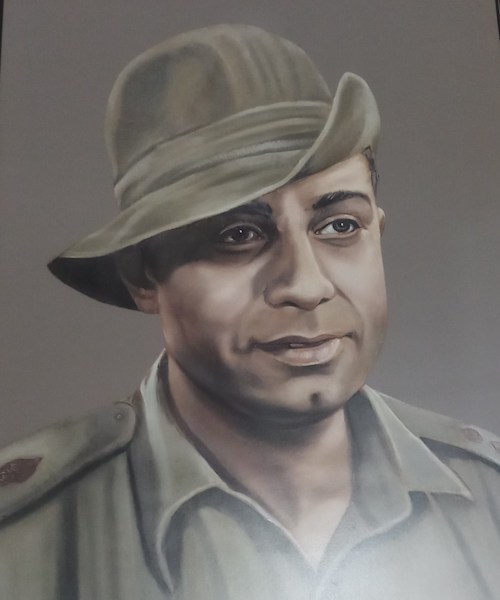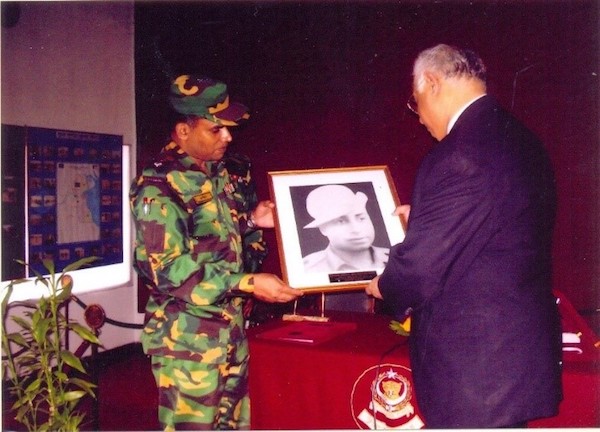A weak economy, growing poverty, educational crises and many more has never stopped us from creating additional problems. The recurring one recently being when the month of Ramadan would start and accordingly when Eid would bring an end to that holy month of fasting. What if the moon is not sighted everywhere at the same time or if the community of one area cannot agree if the moon has been seen? This has been made a problem Pakistan because successive governments have believed that Ramadan should begin on the same day everywhere in the country and there should be one Eid for all. To achieve this science and technology have been utilized, accordingly on 5 June Federal Minister for Science and Technology Fawad Chaudhry launched Pakistan’s first moon sighting website containing a newly-formulated five-year lunar calendar.
Shaikh (Dr.) Haitham Al-Haddad explains on a webpage that interestingly is called “Islam in the 21stcentury”, “that we have two types of months; the first is the legal month, which is known as Ramadan and the second is the astronomical (scientific) one, which is the 9th month of the lunar calendar. All Islamic rulings are based upon the first month which may or may not coincide with the astronomical month. The latter has no significance in the eyes of the Sharath and hence no Islamic rulings are based on it. And that in the 21stcentury! The learned Sheikh does not give any significance to the scientific method and it seems that he is sharing this view with most of our Islamic scholars. It is also a fact that there was a time in the history of Islam between the 9thto the 13thcenturies when the Islamic world was a leading in scientific research and its application made it the leading power in the world. Students from all over Christian Europe came to Cordoba and Baghdad, to al Kahira and Isfahan to study medicine, astronomy, physics and other scientific subjects. When those doubting the usefulness of science started getting the upper hand, Islamic world started to sink and Europe, after ridding itself from the shackles of the Christian church took over the lead in science. By insisting in the 21st century that science has no significance for the way Islam has to be practiced, the Mullahs are intent on perpetuating this state of affairs.
There is another argument as well. What exactly is science? Science is the study of the laws of nature. Who has created the world and the laws according to which nature is functioning? It is the same Allah who has revealed the Qur’an to the Prophet of Islam. Even the Qur’an tells us to watch the moon and the stars, study His creation and learn its purpose. So could there be an unbridgeable difference between what science tells and the word of God? The answer is no; both are coming from the same source and are, therefore, complementary and not mutually exclusive. Our Prophet (Pbuh) knew that and practiced it; He used to count the days in Sha’baan more carefully than at any other time, then he would fast when he sighted (the new moon) of Ramadan. When the moon would not be visible because of clouds he would complete the thirty days and then start the new month.
In Pakistan (and may be in other places as well) there is an unfortunate tendency to force uniformity on people in the mistaken attempt to create unity. This unfortunate idea has had a backlash on Pakistan before, in 1971 half of the country was lost because of the efforts of the central government to unify the nation in its early days by bringing about a uniform language and declaring Urdu the sole national language, by promoting a uniform culture by declaring shalwar kamiz national dress and by centralizing the governance of a culturally, socially and economically diverse country. Until today we have not learned the lessons of our own history. Until today the Language Commission has been unable to solve the language problem in Pakistan and the 18thAmendment meant to give autonomy to the provinces is a sham.

There are examples that prove that the obviously diverse can not only coexist but cooperate, respect and love the other. My father was Punjabi and my mother Bengali; he was a Fauji and she a pampered feudal lady from Bogra, the heartland of Bengal, but brought up in Calcutta. My father never learned to eat curried fish and white rice while my mom could not digest the roti and daal of my father. My father was religious-minded, my mother only moderately so. These were never a problem in our house or between the two of them. Each was free to eat and dress and pray the way he or she chose. It was an extremely happy match and we two children, my (late) sister and myself, had the best of both worlds. Despite the rivers of blood that flowed between the two shades of green in 1971 the CO of 2E Bengal presented to me in Dhaka in 2008 (37 years later) a photograph of my father Lt Col Abdul Majeed Sehgal, who had raised the unit in 1949 as a Major, signed by all the serving officers of 2E Bengal. Incidentally the CO was born in 1971. My parents are buried together in the compound of Abdullah Shah Ghazi’s Mazar in Clifton, Karachi.
In the Islamic Republic that Pakistan is the tenets of Islam should be observed and sighting the moon that is the basis of the lunar calendar is one of the tenets. But uniformity is no tenet of Islam; Qur’an tells us that God has made us different so that we should understand that underneath all differences there is unity of God’s creation. Our differences are God given and have a right to exist! They don’t prevent unity neither in human relations nor in the politics of a state. Islam is a global religion and it intends not only to unite Pakistanis but all Muslims in the world. Allama Iqbal was even of the opinion that Ummah meant humanity that is all people who may stand on different levels of recognizing the Truth of Islam even if they don’t know it yet. Islam can only live up to its global destiny if it unites mankind without trying to uniform it thus eradicating all economic social, cultural differences. Pakistani Muslims in and out of the government should finally recognize this important lesson that it is unity in diversity that we have to strife for. That would solve many more problems than only the one about two Eid’s.




